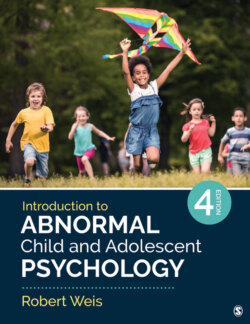Читать книгу Introduction to Abnormal Child and Adolescent Psychology - Robert Weis - Страница 66
На сайте Литреса книга снята с продажи.
Case Study: Ethics with Children: Conflicts of Interest Margaret’s Mournful Mother
ОглавлениеMargaret was a 12-year-old girl who was referred to our clinic for oppositional and defiant behavior. Although Margaret was largely compliant at school, she would frequently disrespect her mother and throw tantrums to avoid responsibilities at home.
The therapist met with Margaret’s mother to gain additional information. During the course of the conversation, it became clear that Margaret’s mother was very depressed and was experiencing considerable marital problems with Margaret’s father. She said she was having a hard time caring for Margaret and performing her other responsibilities at home and work. She also admitted to thoughts of suicide.
The therapist believed that Margaret’s disruptive behavior was connected to her mother’s depressed mood. She offered to counsel Margaret’s mother individually, in addition to providing therapy for Margaret’s disruptive behavior. Was this a good decision?
©iStockphoto.com/Wavebreakmedia
According to the Health Insurance Portability and Accountability Act (HIPAA), the right to confidentiality is held by children’s parents, not by children themselves. Consequently, parents have the right to the information their children disclose in therapy (Sikorski & Kuo, 2015). Therapists must balance parents’ rights with adolescents’ expectations for confidentiality. On one hand, parents have the right to know about the medical and psychological treatment for their children; on the other hand, adolescents are unlikely to fully participate in therapy if their thoughts and feelings are shared with parents without their permission.
Most psychologists raise the issue of confidentiality with parents and teens early in treatment. Here is one strategy:
Psychotherapy works best when adolescents have confidence in the privacy of their conversations. At the same time, parents want to feel confident about their adolescent’s well-being and safety. Since you (parents) were once teenagers, you certainly know that an adolescent may want to use therapy to talk about sex, alcohol, or other activities. Let’s discuss about how we can assure your child’s confidentiality so she can talk openly about what’s on her mind, and at the same time assure you (parents) about your adolescent’s safety. (Koocher & Daniel, 2012)
